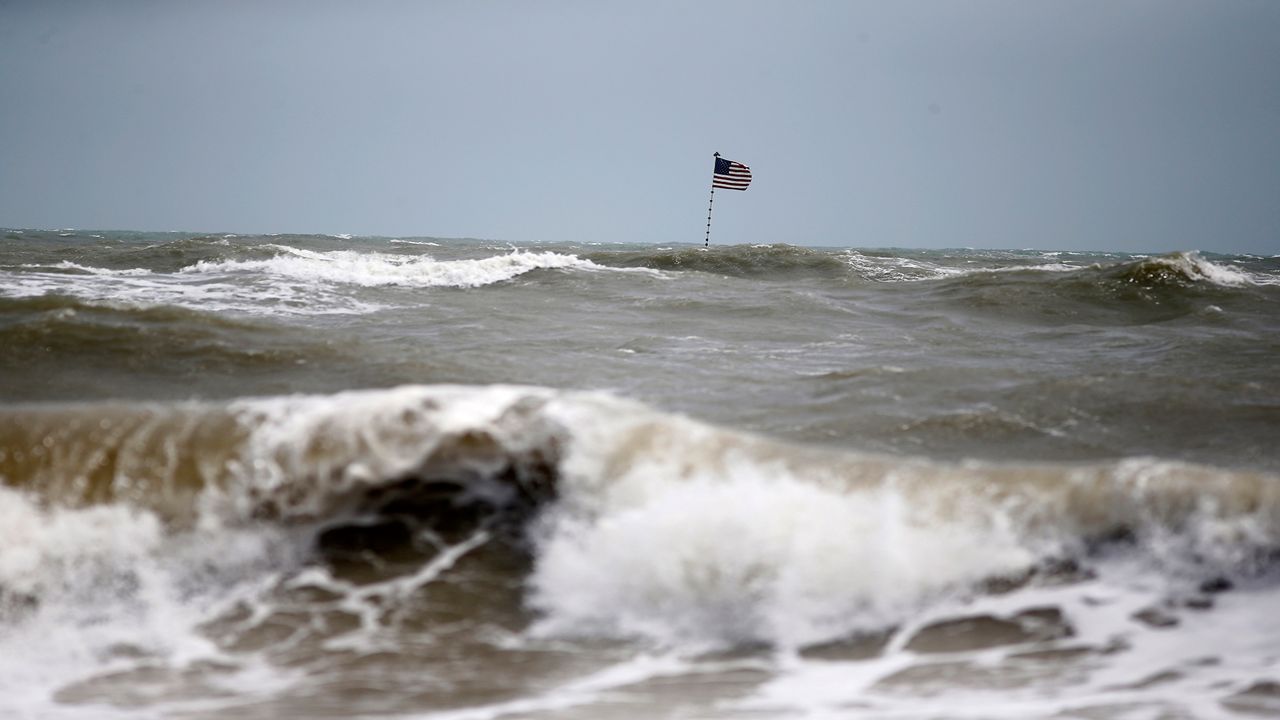After a record-setting 2020 Atlantic hurricane season, two big changes will go into effect this year: The retirement of four storm names and the discontinuation of Greek alphabet storm names.
The World Meteorological Organization's Hurricane Committee retired four storm names from the last two storm seasons, it announced on Wednesday.
WMO #Hurricane Committee has retired #Dorian (2019), #Laura, #Eta and #Iota (2020) from rotating lists of Atlantic names because of the death and destruction they caused
— World Meteorological Organization (@WMO) March 17, 2021
The Greek alphabet will never be used again as it was distracting and confusing
🌀🌀https://t.co/tJGn1dxT1o pic.twitter.com/Eaaockkzbq
Additionally - and with big implications for future hyperactive hurricane seasons - future Atlantic hurricane seasons won't have Greek alphabet storm names. A supplemental A-Z storm list now goes in the Greek alphabet's place for future seasons that require extra names.
The World Meteorological Organization (WMO) decides whether or not to retire storm names based on the "death and destruction they caused". The WMO retired Hurricane Dorian (2019) along with Hurricanes Laura, Eta and Iota (2020).
The National Hurricane Center has a rotating six-year list of hurricane names. A storm name's retirement means that it is permanently removed from that rotation.
Dexter will now replace Dorian on the 2025 list, and Leah overtakes Laura on the 2026 list.

However, Eta and Iota won't appear in future years also because the WMO discontinued the use of Greek alphabet storm names.
When storm names run through their regular pre-determined list, such as what happened in 2020, future storm names transitioned into the Greek alphabet. While that only happened twice (2005 and 2020), the WMO determined the transition to Greek storm names sent a confusing message to the public.
The WMO cited "a distraction from the communication of hazard and storm warnings and is potentially confusing" for its rationale in discontinuing the use of Greek storm names.
Tampa-based Spectrum News Chief Meteorologist Mike Clay agreed with the decision and the increased likelihood of using Greek storm names due to the potential increase in number of named storms.
"(It) seems like a good idea with the larger number of named storms we are getting in recent years," Clay said.
In place of the Greek alphabet, the NHC will use a supplemental list provided by the WMO. That list begins with Adria, Braylen and Cardidad.



